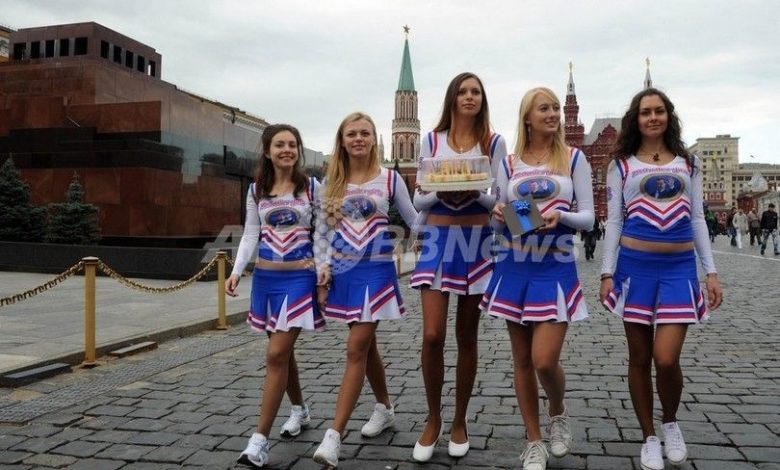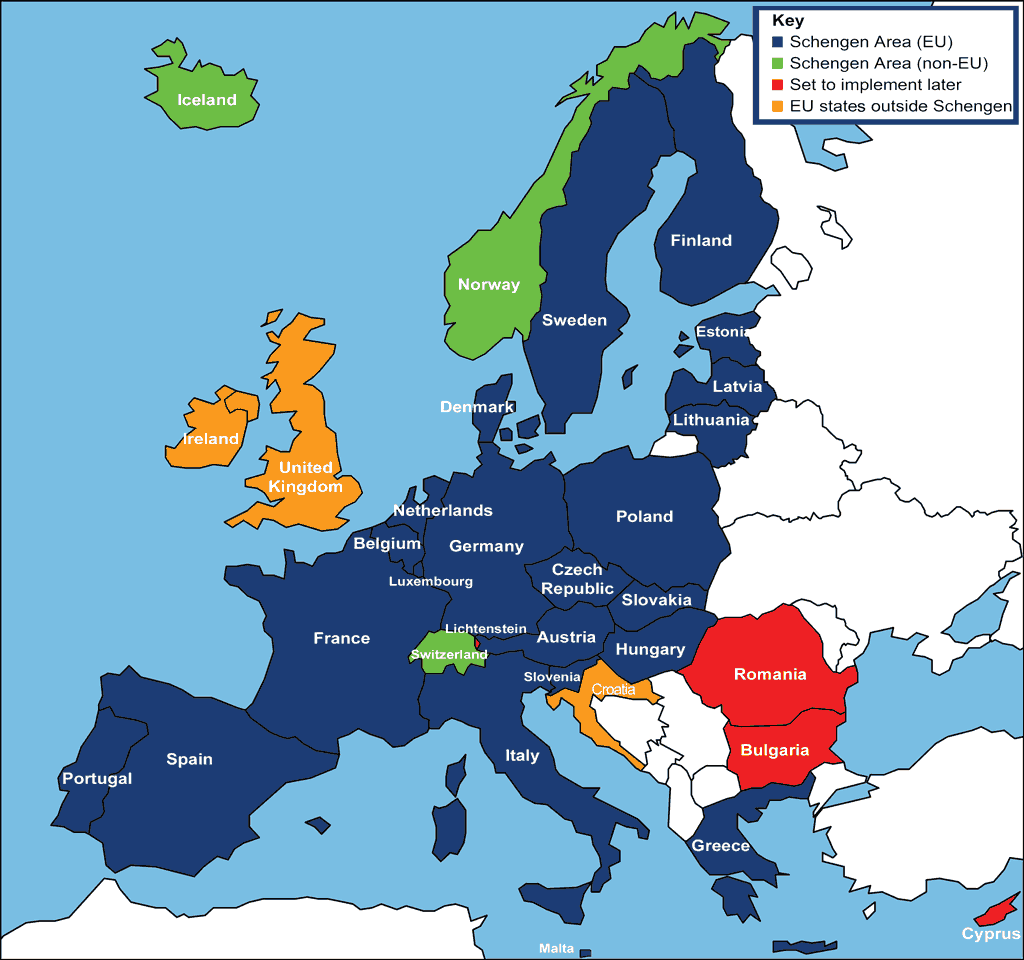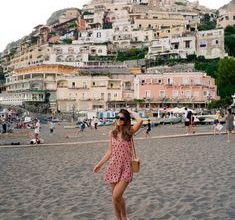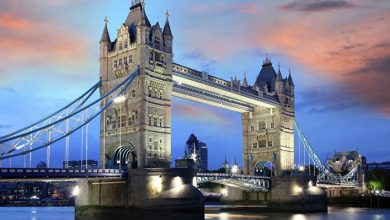Ajar Russia
The high cost of Russian visas and our bureaucratic delays create a real barrier for guests from abroad
Why is our country still inaccessible to foreigners
A new visa code has come into force, binding on all countries of the European Union. The document has greatly simplified the receipt of “Schengen” for the Russians, but little has changed for foreigners who want to visit our country. Despite the huge potential of Russia, the tourism market is experiencing a serious decline. Last year, according to the Federal State Statistics Service, the tourist flow of foreigners in the Russian Federation decreased by 8.5% and amounted to 2.1 million people. The devaluation of the ruble more or less saved the situation, because of which it was beneficial for foreign tourists to come to our country. This year, according to forecasts, the decline will continue. Tourists are frightened off by rising prices, poor infrastructure, a sparse list of entertainment, as well as a complex and confusing visa issuing mechanism.
“Heidi Andersson, multiple world champion in arm wrestling, was denied a Russian visa because of an allegedly torn passport.” Similar reports about celebrities who are denied entry to Russia periodically appear on the pages of Scandinavian newspapers, reinforcing the common people in the opinion that Russian consulates are not the most “easily walkable” institutions in the world. “Three visas are required to travel on the Trans-Siberian Railway. Mongolian and Chinese are easy to obtain on their own, a completely different thing is Russian, – young Swedish travelers share their experience on their web page. “For four months, we exchanged e-mails with various Olga and Anastasia from travel agencies in Russia, who were supposed to provide us with seven types of documents necessary for entry. Advice for those who decide to follow our footsteps: it’s better to pay a travel agency in Sweden if you want to avoid a lot of trouble. ”
Especially a lot of dissatisfied among the Finns, because it is they who more often than other Scandinavians come to Russia. So, the Finnish Consulate General issues tourist visas to Russians without the requirement to present an invitation or without booking a hotel. A Finnish tourist is required to have either an invitation or a document not only about booking, but also about paying for a hotel room. North European tourists are also annoyed by the mandatory certificate of absence of HIV infection if the guest intends to live in the country for more than three months. Turning to a medical institution in my home country with a desire to be tested for AIDS is fraught with a lot of inconvenience, mainly of a psychological nature, which is why the sale of fake certificates sold by certain travel companies in one package with “visa” services has spread to Finland. The average Finnish does not understand the logic of Russian law: it turns out that an AIDS carrier can safely enter the country for two months and 29 days, but if it is longer, it poses a threat to the life and health of Aboriginal people.
The system of registration of foreigners causes a lot of complaints if they live in one city for more than three days. “The Russian goes to Madrid, Rome, Paris, Brussels, Amsterdam and does not explain to anyone why and how much he goes there, the main thing is that he leaves on time. The Spanish citizen must communicate with the authorities and register wherever he goes – in Moscow, Irkutsk or St. Petersburg, ”complained the other day, in an interview with” NI “, the Ambassador Extraordinary and Plenipotentiary of Spain to Spain, Juan Antonio Mark. Of course, all these difficulties can be explained by the peculiarities of national politics in the spirit of an “eye for an eye”. But how, then, to justify our unwillingness to meet the states that promote loyalty to “Russo touristo”? “We give Russians multiple-entry visas for six months, and our citizens are given a single visa for four days,” the Spanish ambassador emphasizes. “The abolition of visas for tourists from the EU would be a logical step,” said the director of the travel company Ilya Klubnikin. “We have a visa-free regime for citizens of the CIS countries, is it really possible that with a free entry for European tourists a flood of migrant workers from France will pour in?”
Gilt pen
Like it or not, a trip to Russia for an ordinary foreign tourist is quite costly, and not only in terms of the number of nerve cells or hours. For example, for the Japanese, the cost of a weekly tour with a tour of Moscow and St. Petersburg varies in the region of 2.6-3.2 thousand dollars. This is not so expensive for wealthy Japanese citizens, but the purchase of souvenirs is already creating problems – prices in the main cities of Russia are “biting”. A pretty penny for a Japanese traveler costs restaurant service and hotel accommodation. Russian translator Natsuko Samejima studied for many years in the Russian Federation, in our country she has more than a dozen friends. “Five to six years ago, I was able to book rooms up to 150-200 dollars a day in the center of the capital or close to it, but now the board has skyrocketed,” she laments. “With a salary of three thousand dollars a month, it’s difficult for the Japanese to visit Russia often.” Some five-star hotels in Russia are clearly inferior in terms of the set of services to Tokyo, single rooms in which it is quite possible to rent for the same 150-200 dollars, and in ordinary three-star hotels per day – for 100 dollars. “I would like to visit Moscow on an individual tour and rent housing in the private sector, but this type of travel agency service is not yet offered,” concludes Natsuko Samejima sadly. Not surprisingly, the Japanese prefer to watch Russian sights on the Internet.
There is nothing to be surprised at for foreign tourists: Moscow has long been a leader in the list of the most expensive cities in the world. However, the requirement of “gilding a pen” begins long before crossing the border. “There are two deadlines for issuing a Russian tourist visa for Europeans: ten days and three days,” says Vladimir N. Kantorovich, First Vice President of the Association of Tour Operators of Russia (ATOR). – The difference in price is at least twice. Due to this, the Russian consulates create artificial situations when a tourist is forced to issue an urgent visa, which means paying more. ” Another income item in Europeans is the invitation trade. The Internet is full of companies promising guaranteed visas, and it is not necessary to buy a tourist package from them. The cost of such a service ranges from 1.5 thousand to 12.7 thousand rubles, depending on the type of visa, length of stay in Russia and the citizenship of a foreigner. “This is illegal,” Mr Kantorovich explained to NI. – However, the consulate does not always have the opportunity to verify the authenticity of the information provided, but usually does not seek to do so. Invitations are still being received by fax, which is easiest to fake. ”
This service is especially popular among citizens living in countries of the so-called migration risk. It is noteworthy that almost all countries that canceled or simplified entry visas for Russian tourists are included there. “Citizens of these countries more often than others use Russia as an intermediate country for illegal migration to Europe,” Vladimir Kantorovich told NI. – It happens like this: a man flies from Angola to Paris with a transfer in Russia. Since it passes through our airport, there is no need to communicate with border guards. Before boarding a plane, a foreigner solemnly lowers his passport into the toilet. From Paris he is sent to the place from which he flew: in this case, back to Moscow. ”
Citizens of these countries can get a Russian visa, but with reservations. For example, they will definitely need to go through an interview at the consulate and provide “armor-piercing” confirmation of solvency. Such nit-picking with a good purpose puts respectable tourists in an uncomfortable position. Now, the former Ambassador of India to the Russian Federation, Kanval Sibal, has repeatedly said “NI” about the need to simplify the procedure for processing documents, as well as to reduce the time for receiving it. Talk about this was still four years ago, but no serious progress is visible. At the same time, Indian citizens have an interest in Russia, as well as material opportunities to travel. “You have to be realistic. If we, with constant talk about excellent relations between Delhi and Moscow, even businessmen cannot achieve simplification of visa procedures, what can we say about Indian tourists? Your officials probably see them as potential illegal immigrants, ”Prabha Satil, an employee of one of the Indian travel companies, said sadly.
To see Moscow and die from boredom
And well, even after all this, the tourist would get a decent excursion program! But in the vast majority of cases, foreigners cut circles on the Golden Ring, rarely getting outside. “In addition, excursion programs usually include Moscow and St. Petersburg,” Ilya Klubnikin told NI. – River cruises along the Volga or the Russian North, with a stop at Valaam, are in stable demand. Of the new objects of display can be called Lake Baikal and Kamchatka. Alternative routes are extremely rare. ”
The tourism market in Russia is quite inert, and not only in terms of new entertainment, experts say. Representatives of the older generations, who make up the majority of tourists in Russia, complain about the poor conditions for recreation and the low qualification of the attendants. “A Pole who comes to rest wants to feel like a pan, at least for a while,” an avid traveler Jacek Dombrowski shared with “NI”. – And in Russia a really decent service can get very rich people, throwing money left and right. This is not accepted in our culture, we take care of every penny even on vacation. ” Because of this, Polish tourists choose our country in 2% of cases, while in 2000 this figure was 5%.
Apparently, the market situation will not change in the near future. The advertising budget for the promotion of tourism opportunities in the country in 2010 was reduced by 45% and amounts to less than three million euros. The problem could be mitigated by administrative indulgences that make life easier for tourists. But it seems that we are not interested in this either. “Every foreign tourist, arriving in Moscow, wants to visit the Kremlin, but due to the fact that it is an object of FSO protection, getting there is not so easy,” explained Vladimir N. Kantorovich. “In 2009, less than 500,000 foreigners visited the Kremlin, a little more in recent years.”
But the tourism potential of our country is huge. “Holidays in Karelia and the Caucasus are not popular among foreigners due to undeveloped infrastructure,” says Ilya Klubnikin. – We could attract more tourists to the Krasnodar Territory, popularizing spa treatment. It’s much cheaper in terms of money than in Europe, and in terms of quality of treatment it is often higher than there. ” “Nightlife in Moscow could interest young people, but little is known about this tourism sector, there is almost no propaganda, as well as state support,” says Vladimir Kantorovich. Summer camps for children, including language ones, would be in good demand. In addition, Russia could rely on extreme tourism in the style of “zero amenities – a sea of pleasure”. However, experts say that even such an economical option will still require investment in an advertising campaign and the development of at least some kind of infrastructure.
ONLY 2% OF GUESTS OF THE KRASNODAR TERRITORY – FOREIGNERS
In the 1980s, only the city of Sochi accepted 250 thousand foreign tourists for rest and treatment, and every third of them was an East or West German. Also in the Sochi resorts Finns and Poles loved to spend leisure time. Then foreigners were mainly attracted by relatively low prices, a high level of security, as well as the beauty of the Black Sea coast. After the collapse of the USSR, there was a sharp collapse of foreign tourist flow to the Krasnodar Territory, and to this day the number of people coming here from abroad remains unchanged and does not exceed 2% of the total number of tourists. In the past and the year before last, no more than 25 thousand foreigners, including citizens of neighboring countries, had a rest in the resorts of the Krasnodar Territory. Since 2008, the so-called “military tourists” from the same Germany have appeared in the region, visiting German military cemeteries. In 2009, more than one thousand Germans visited the battlegrounds of the Great Patriotic War and the memorial cemetery in the Kuban. Beckons to foreigners and untouched virgin nature of the Caucasus Mountains. Hotel operators such as Marriott and Hyatt, who are building their hotels, despite the crisis, have notably intensified, not only in the Black Sea cities, but also in Krasnodar. The main thing that limits the flow of foreign travelers is the fear for their safety. Despite the large-scale advertising campaign, the resorts of the Black Sea coast are connected in the minds of the same Europeans with the Caucasus – a territory of turbulent and vulnerable to terrorist threat. So in the last (pre-crisis) years, resorts of the Krasnodar Territory have developed mainly due to an increase in the level of well-being of Russians and, accordingly, an increase in the number of people who can afford a vacation on the coast. And the active promotion of the resort in the international arena and the obtaining of Sochi the status of the capital of the Winter Olympics-2014 today attract more and more attention not only foreign tourists, but foreign investors to the city.
Sergey PEROV, Krasnodar
IN THE KALININGRAD REGION Nothing came to replace the NOSTALGIC GERMAN TOURISM of the 90s
According to statistics, in 2008 the Kaliningrad region was visited by 115 thousand foreign tourists, and in 2009 – only 80 thousand 400. Officials of the regional government who supervise the tourism industry associate the fall with the global economic crisis and, most importantly, with a decrease in transport accessibility: namely in 2009 KD-Avia Airlines ordered to live long, which was the main connecting bridge of the westernmost region of Russia with foreign countries. Foreigners, among the main constraining factor, call visa barriers. In addition, along the entire perimeter of the region’s borders there is a border zone with a width of 7–9 kilometers, and to visit it it is necessary to apply for permission to the relevant services already for two months. It is clear that only a few motivated enthusiasts are ready to overcome such thorns. Nostalgic German tourism, which was one of the brightest signs of the region in the early 1990s, is not relevant today: the bulk of the former inhabitants of East Prussia passed into a different world. And those living, who once visited the “historical homeland”, are not at all eager to repeat visits – they do not want to be upset again. And the pricing policy does not favor such trips: holidays in Mallorca will cost a comparable amount, and the level of service there is much better: especially the residents of the European Union are depressed by the lack of public toilets in the regional center and their complete absence in the regions. The staff of the tourist infrastructure, as a rule, does not speak foreign languages, and the hotels, which have recently become enough, are, with rare exceptions, not equipped with elevators and ramps. The monuments of the Middle Ages and modern times are mostly destroyed, so the Europeans have nothing to watch here. Once (until 1945), well-equipped seaside resorts are also in a state of disrepair, and eco-tourism in the floodplains of the Slavsky district and the Romintenskaya Pushcha so far exists only in the plans of all the same officials who, however, do not lose heart and predict the growth of visits to the region by foreigners in the current up to 97–100 thousand
Ostap BONDARENKO, Kaliningrad
This post is also available in:
 English
English  Русский (Russian)
Русский (Russian)






